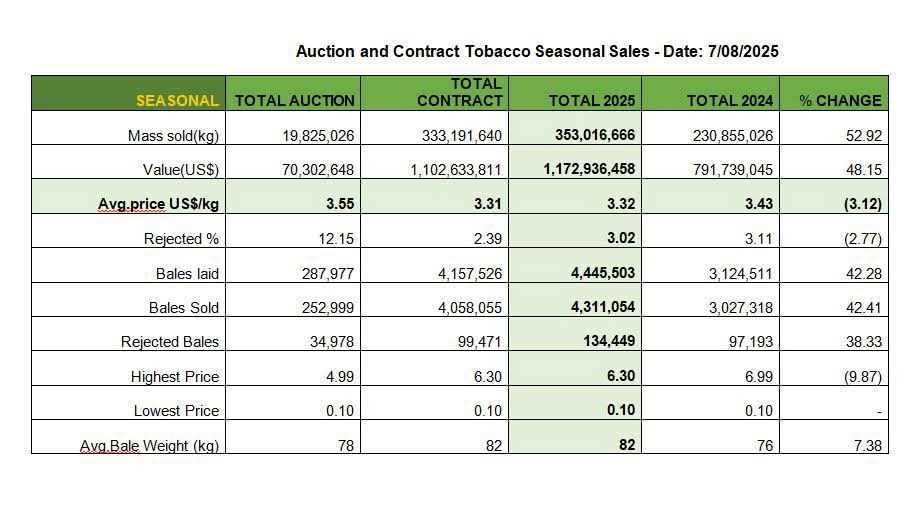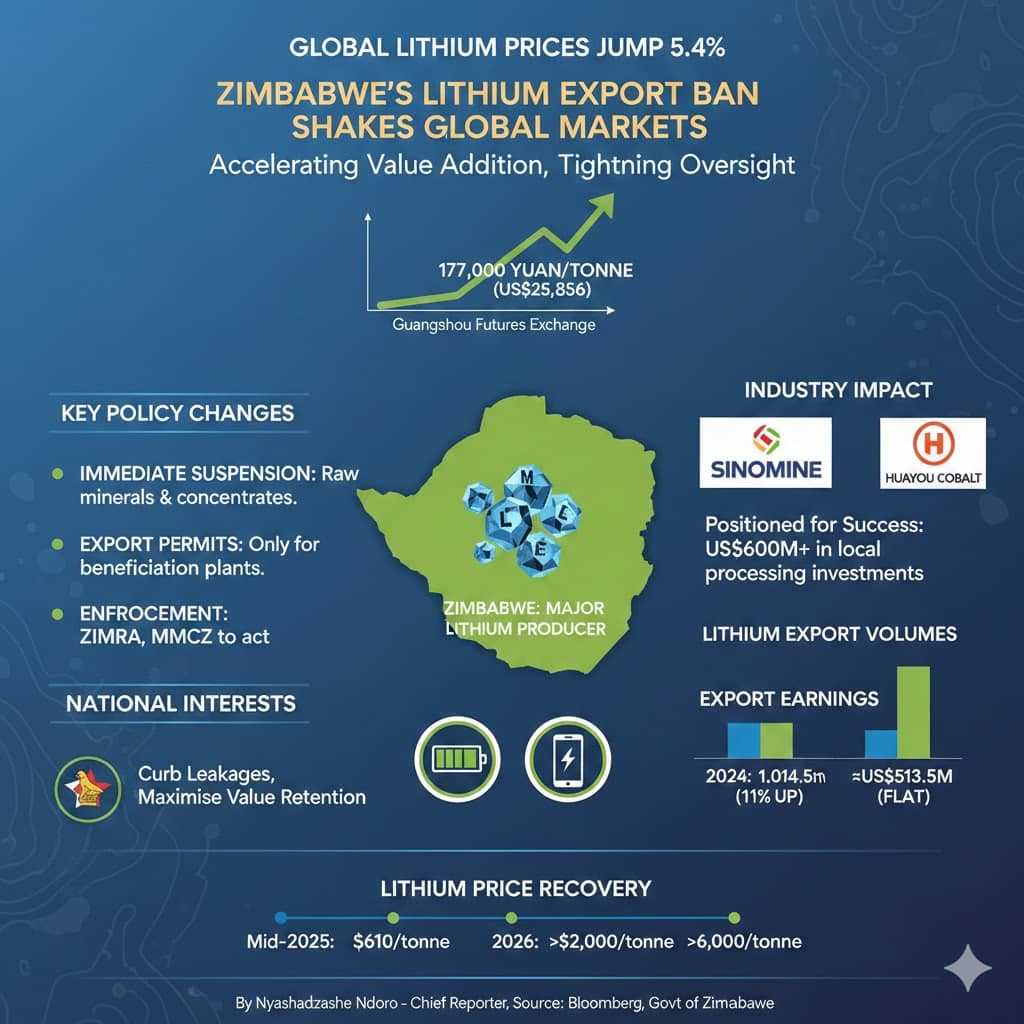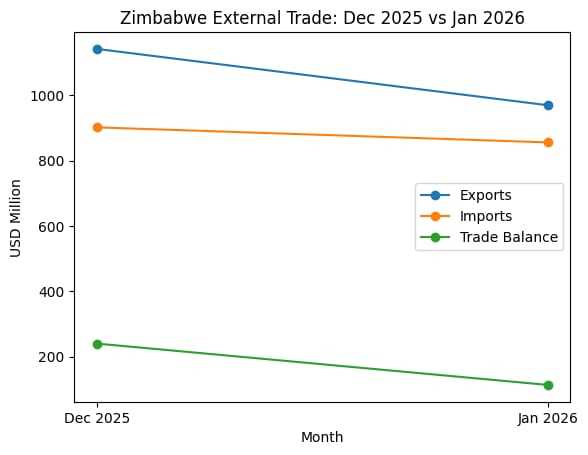
Rutendo Mazhindu- ZimNow Reporter
Zimbabwe’s 2025 tobacco marketing season has officially closed, with a total of 353,016,666 kilogrammes of tobacco delivered, marking a 52.92% surge from the 230,855,026 kilogrammes recorded in 2024.
According to the latest statistics released yesterday, the total value of the crop reached US$1,172,936,458 — a significant 48.15% increase compared to the US$791,739,045 earned in the previous season.
Out of the total mass, 333,191,640 kg was sold under contract farming, while 19,825,026 kg went through auction floors.
The average price per kilogramme stood at US$3.32, which is 3.12% lower than last year’s US$3.43. Contract sales fetched US$3.31 per kg on average, while auction sales recorded a higher average of US$3.55 per kg.
Zimbabwe Tobacco Industry and Marketing Board spokesperson Isheunesu Moyo said the figures demonstrate the resilience of the sector despite global economic headwinds.
“This performance confirms tobacco remains a strong pillar of Zimbabwe’s economy. Our growers continue to respond to international demand with improved volumes and quality,” he said.
Related Stories
The season saw a total of 4,445,503 bales laid and 4,311,054 bales sold — increases of 42.28% and 42.41% respectively from 2024. Rejected bales stood at 134,449, up from 97,193 last season.
The highest price fetched this year was US$6.30 per kilogramme, compared to US$6.99 in 2024, reflecting a 9.87% drop. The lowest price remained unchanged at US$0.10. Average bale weight rose from 76 kg to 82 kg.
Contract sales continued to dominate the market, accounting for over 94% of total deliveries. Rejection rates dropped slightly to 3.02% from 3.11% in 2024.
In the 2024 season, a total of 3,124,511 bales were laid and 3,027,318 bales were sold. That season brought in just under US$800 million and closed with a national average price of US$3.43 per kilogramme.
The industry faced constraints including erratic rainfall and high input costs but managed to register stable performance.
Moyo added that the growth this year is partly attributable to increased support for growers and expanded hectarage.
“We are seeing the results of investment in both inputs and farmer education. These figures are encouraging for the future of tobacco farming in Zimbabwe,” he said.



















Leave Comments